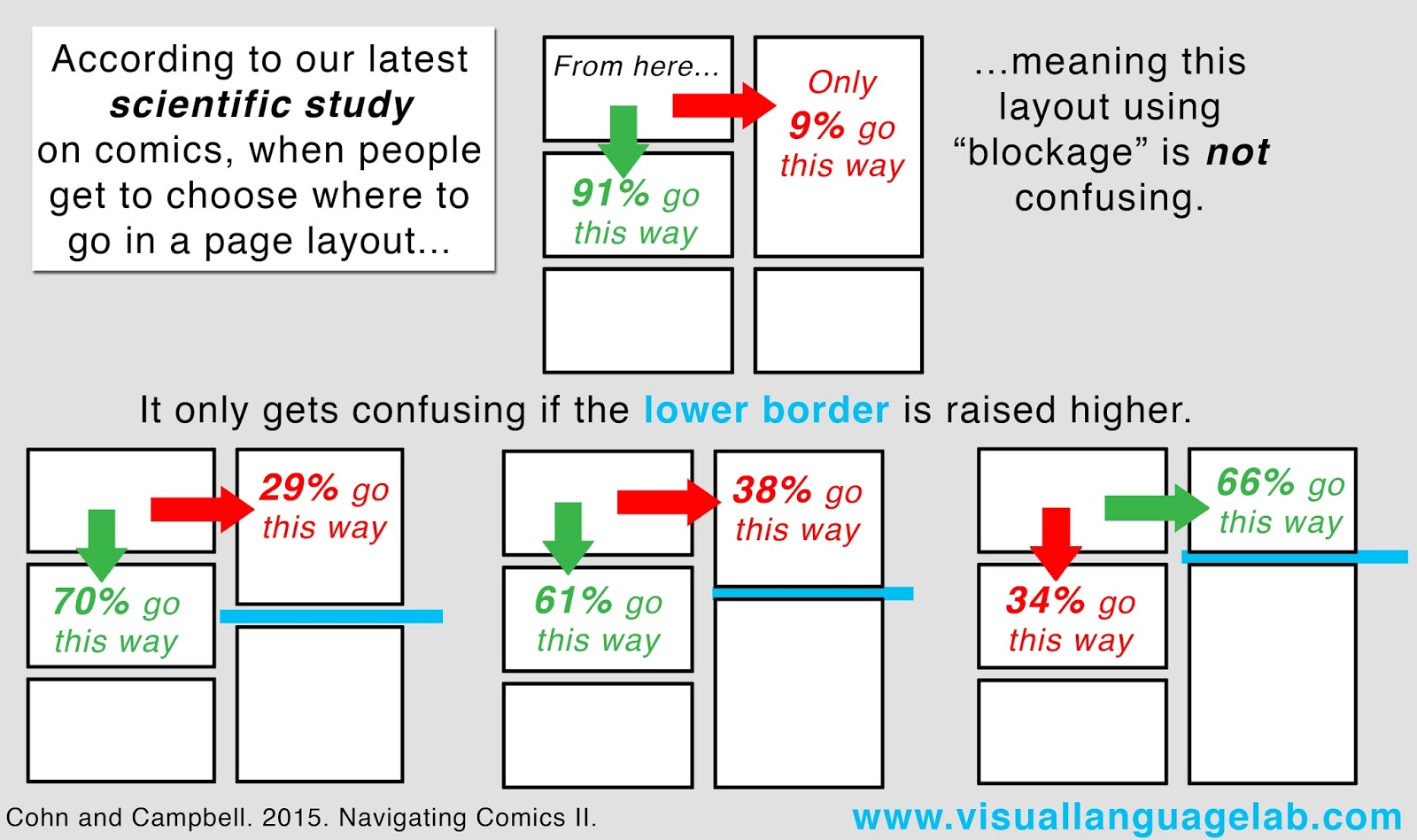Tourist traps in comics land*: Unpublished comics research
In a series of Twitter posts, I recently reflected on the pitfalls of various comics research that hasn’t been published. Since I think it contains some valuable lessons, I’m going […]
Dispelling myths of comics understanding

In reading through various works about comics understanding, I keep hearing several statements repeated over and over. But, several of these statements are not reflective of the way people actually […]
How to analyze comics with narrative grammar
Over the past several years, I’ve presented a lot of evidence that panel-to-panel “transitions” cannot account for how we understand sequences of images in visual narratives like comics. Rather, I’ve […]
Comic reading fluency
At my ComicCon panel, someone asked me whether I have a measure for comic reading experience. Indeed, I do! I’ve been using the Visual Language Fluency Index (VLFI) score which […]
Comic-Con 2015: The Scientific Study of The Visual Language of Comics
Thanks to my good friend Dan Christensen, I here present my talk from Comic-Con 2015, “The Scientific Study of The Visual Language of Comics.” This was my introductory talk for […]
Using the theory of narrative grammar
As people have now started reading my book and papers, they’ve naturally started to try to apply my theories of “narrative grammar” to sequential images found in comics. My “narrative […]
New paper: Building a better “comic theory”
I’m happy to say that I have a new paper (pdf), “Building a better “comic theory,” in the latest issue of the journal Studies in Comics. In this one I critique […]
Visual Language research galore!
Can I brag for a moment? Not about me, really, but about my students! This quarter I’m teaching a course on the “Cognition of Comics” for the UCSD Cognitive Science […]
The Visual Language Fluency Index
One of the interesting findings throughout many of my experiments is that the comprehension of sequential images seems to be modulated by participants’ “comic reading expertise.” These effects are predicted […]
Violating comics… for science!
Every now and then, I see or receive commentary from people about my studies where they object to some of the stimuli in my experiments. They exclaim things like, “But, actual […]